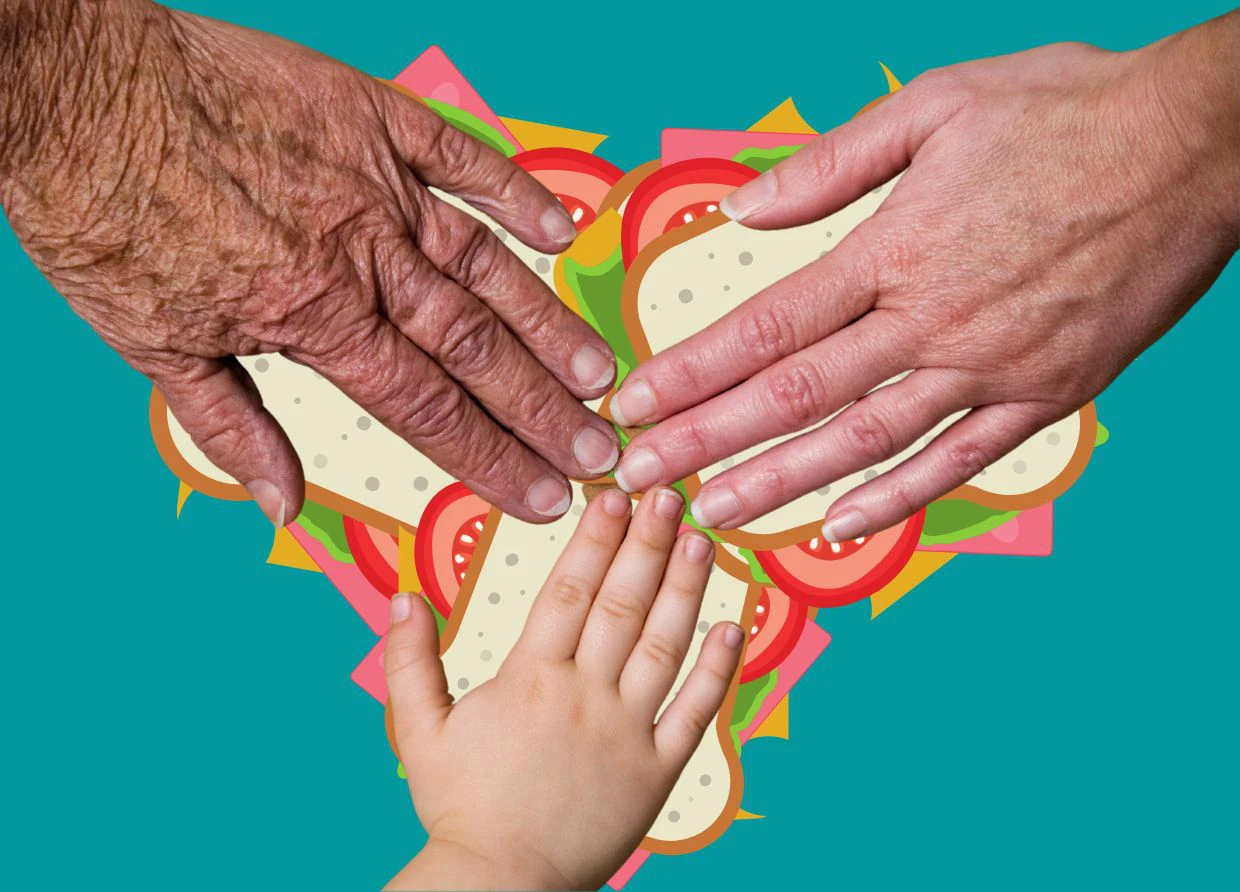SANDWICH GENERATION: HOW TO MANAGE AND BREAK THE CYCLE
The struggle of being a sandwich generation, here's how to manage and break the cycle.

Most of you probably have heard the term ‘sandwich generation’. The sandwich generation is people who have to be responsible for taking care of not only themselves and their kids but also their loved ones. Let’s say their parents, in-laws, or other family members.
This term was first introduced in 1981 by Dorothy A. Miller. She’s a professor and director of Kentucky University. She mentioned the term in a journal called “The ‘Sandwich’ Generation: Adult Children of the Aging” (1981).
Most of the time, sandwich generation are people between the age of 40-65. But sometimes, people in their 20s could also become a sandwich generation.
Indonesia also has quite a high number of the sandwich generation. There are no exact numbers yet, but based on the Central Bureau of Statistics (Badan Pusat Statistik), in 2020, life expectancy in Indonesia increased to 73 years old. It was previously 60 years old.
Household members who work provide the majority of income for senior homes. The elderly's household economy is supported to the tune of 77.82 percent by working family members. Remittances or products, 6.46 percent from pension funds and 0.76 percent from investments, make up the remaining 14.97 percent.
The elderly make up roughly 50.94 percent of all elderly households whose income is supported by working home members. The rest comes from the household's working members. The majority of them are children, grandchildren, or other family members.
This phenomenon is occurring not only in Indonesia but all around the world. In Singapore, according to the NTUC Income study, around 94 percent of persons between the ages of 35 and 55 belong to the sandwich generation. They are burdened by the demands of providing for themselves, their children, and their parents or grandparents.
One of the reasons it could happen is because of the population trends. Singaporeans are among the world’s longest-living people. They have a life expectancy of about 84,8 years in 2017.
Population trends are one of the reasons why this could happen. Singaporeans are among the world's life expectancy leaders. In 2017, they had a life expectancy of 84,8 years.
Taking population trends into account, this is predicted to get worse. Singaporeans are expected to live to be 85,4 years old by 2040. Regrettably, higher life expectancy is not accompanied by improved health in later life. The majority of them are forced to live in poor health.
Around 80% of Singapore's young people believe they will be a part of this phenomenon. As a result, they've begun to accept the notion of becoming a sandwich generation. To assist their parents, they are willing to reduce their standard of living, have fewer children, or even have no children at all.

The risks of being a sandwich generation
With that much of a burden, it is unavoidable that being a sandwich generation has a very large risk for depression and anxiety. It is a result of the increased stress and pressure they experience.
A lot of the sandwich generation are burdened by their emotional obligations. They must cater to a large number of individuals. The younger generation, on the other hand, is currently striving to achieve financial independence. It was difficult enough to finance yourself, let alone others.
The sandwich generation is also expected to put a hold on a lot of plans. Vacations, having children, and returning to school are just a few examples. They lack the necessary time, energy, and resources.
They will also believe that they do not have enough personal time due to their excessive job. Not to mention the problems they faced in their varied positions as a child, a husband or wife, a mother or a father, or as themselves. Personal time is critical for your emotional and physical well-being.

How to manage to be a sandwich generation
It is not easy being a sandwich generation. On the one hand, there's this huge responsibility of supporting your parents or other family members. On the other hand, it makes you really unhappy. Having no time to be yourself, spend time with your family, or appreciate your accomplishments.
However, there are several things you can do to avoid being part of the sandwich generation. First, as a support for family life, you could speak with other family members to alleviate the load. Slowly and clearly communicate with them, ensuring that they understand your urgency. Also, let them know what your financial limit is.
Then there's dealing with the stress. It's impossible to avoid stress. So you need to handle them well. Learn how to communicate your feelings healthily. You might spend some time alone or engage in other hobbies and enjoyable activities. Do not put aside your emotional needs. If you feel so overwhelmed, there’s nothing wrong with asking for help from other family members.
You must not only overcome but also destroy the sandwich generation cycle so that it ends at oneself. Increasing financial literacy is one of them. Investment, insurance, budgeting, spending habits, and saving are just a few examples. Don't forget to set aside money for retirement and your children's schooling as well.
A lack of financial knowledge is one of the reasons why there are so many sandwich generations. Parents are not financially ready to cover their monthly expenses in retirement. Indirectly they 'hope' that their children will pay for them in their old age.
Calculate your typical monthly expenses and then set a time limit. Use a certain scheme to calculate your monthly expenses for retirement and start saving as soon as possible. That way, you really can break the chain of sandwich generation for your child in the future.
#THE S MEDIA #Media Milenial #sandwich generation #cycle



























